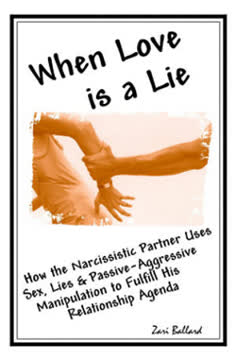Key Takeaways
1. Narcissists are master manipulators who thrive on chaos and control
To the pathologically weary N/P, the outside world is filled to the brim with (sigh) emotional fools that he must unfortunately tolerate…boring "love" people who always want to do the right thing.
Narcissists lack empathy. They view others as objects to be used for their own gain, not as people with feelings and needs. This fundamental lack of empathy allows them to manipulate and exploit others without remorse.
They create chaos intentionally. Narcissists thrive on keeping their partners off-balance and anxious. They may:
- Suddenly disappear without explanation (the "silent treatment")
- Make contradictory statements or change plans at the last minute
- Create drama and conflict in otherwise calm situations
- Alternate between loving behavior and cruel treatment
Control is paramount. Narcissists need to feel in control at all times. They achieve this through:
- Gaslighting - making you doubt your own perceptions and memories
- Isolating you from friends and family
- Controlling finances or other resources
- Using guilt, shame, or anger to keep you compliant
2. The narcissist's relationship agenda is to keep you unbalanced and insecure
What the narcissist does particularly well and with steadfast precision is manage down our expectations over time so that we expect less and less and he gets away with more and more.
The narcissistic cycle. Narcissists follow a predictable pattern in relationships:
- Love bombing - showering you with attention and affection
- Devaluation - slowly chipping away at your self-esteem
- Discard - abruptly leaving or cheating, often returning later to restart the cycle
Keeping you off-balance. The goal is to create a state of constant anxiety and insecurity. This makes you easier to control and less likely to leave.
Intermittent reinforcement. By alternating between affection and cruelty, the narcissist creates a powerful trauma bond. You become addicted to the highs of their occasional kindness, always hoping things will return to the initial love bombing phase.
3. Recognizing the signs of narcissistic abuse is crucial for breaking free
There's a reason why women don't immediately recognize the signs – for the most part, there aren't any.
Early warning signs are subtle. Narcissists are often charming and attentive at first. Red flags may include:
- Love bombing or moving too fast in the relationship
- Lack of empathy for others
- Grandiose sense of self-importance
- Need for constant admiration
- Sense of entitlement
Abuse escalates over time. As the relationship progresses, more obvious signs emerge:
- Frequent lying and gaslighting
- Emotional manipulation and guilt-tripping
- Violating your boundaries
- Cheating or threatening to cheat
- Extreme jealousy and possessiveness
- Verbal abuse or rage outbursts
Trust your instincts. If something feels off, it probably is. Narcissists are skilled at making you doubt yourself, but your gut feelings are often correct.
4. Narcissists deliberately manage down your expectations over time
To deliberately expend more effort than needed would indicate some level of predictability and well-intention on his part and just may "up" your expectations of him. Consequently, it will never happen and you will be punished in some way for pushing it.
Gradual erosion of standards. The narcissist slowly conditions you to accept less and less in the relationship. This happens through:
- Consistently failing to keep promises or follow through on plans
- Gaslighting you when you express disappointment
- Accusing you of being "too needy" or having unrealistic expectations
- Punishing you (e.g., silent treatment) when you ask for more
The "crumbs" phenomenon. Over time, you become grateful for even the smallest bits of attention or affection. This keeps you hooked on the relationship despite chronic mistreatment.
Preventing you from leaving. By managing down your expectations, the narcissist ensures that you won't feel deserving of better treatment from a healthier partner. This makes it harder for you to leave the toxic relationship.
5. Setting and enforcing boundaries is essential in dealing with narcissists
Understand that all of this - everything you have read on these pages - can happen to you no matter how intelligent, sexy, pretty, wealthy, successful, educated, or intuitive you are.
Narcissists don't respect boundaries. They feel entitled to do whatever they want, regardless of how it affects others. This makes setting and enforcing boundaries crucial.
Identify your non-negotiables. Determine what behaviors you absolutely won't tolerate, such as:
- Verbal abuse or name-calling
- Silent treatment or stonewalling
- Cheating or flirting with others
- Violating your privacy
- Controlling your finances or social life
Enforce consequences consistently. When a boundary is crossed, follow through with a predetermined consequence every time. This might include:
- Leaving the situation immediately
- Limiting contact for a set period
- Ending the relationship if the behavior continues
Expect pushback. Narcissists will often react with anger, guilt-tripping, or love bombing when you set boundaries. Stay firm and remember that your well-being is the priority.
6. No Contact is the only effective way to escape narcissistic abuse
Going NC actually gives you the last word!
Why No Contact is necessary. Narcissists are skilled manipulators who will use any contact to try to regain control. Complete separation is the only way to break free from their influence.
Implementing No Contact:
- Block their phone number, email, and social media accounts
- Inform friends and family not to pass messages or information
- Avoid places where you might run into them
- Have a plan in place for accidental encounters
Dealing with hoovering attempts. Narcissists often try to re-establish contact after a period of silence. Common tactics include:
- Claiming to have changed or gotten help
- Manufactured emergencies
- Reaching out on significant dates (birthdays, holidays)
- Using mutual friends or family to relay messages
Stay strong. Remember that any contact, no matter how small, can reset the trauma bond and pull you back into the abusive cycle.
7. Healing from narcissistic abuse requires understanding your own vulnerabilities
Co-dependants love so deeply that they allow their boundaries to be breached over and over. They will tolerate behavior that, prior to this particular relationship, they would have never envisioned themselves tolerating.
Examine your patterns. Reflect on why you were drawn to and stayed in the narcissistic relationship. Common factors include:
- Low self-esteem or feelings of unworthiness
- Codependency or people-pleasing tendencies
- Unresolved trauma from childhood
- Fear of being alone or abandoned
Build self-awareness. Work on understanding your emotions, needs, and motivations. This can help you avoid falling into similar patterns in the future.
Seek professional help. Therapy, particularly modalities like Cognitive Behavioral Therapy (CBT) or Eye Movement Desensitization and Reprocessing (EMDR), can be invaluable in processing trauma and developing healthier relationship skills.
Practice self-compassion. Remember that being manipulated by a narcissist doesn't make you weak or stupid. Be kind to yourself as you heal and learn from the experience.
Last updated:
FAQ
What is "When Love Is a Lie" by Zari L. Ballard about?
- Personal account of narcissistic abuse: The book is a non-clinical, first-person narrative detailing the author’s 12-year relationship with a narcissistic partner.
- Focus on emotional manipulation: It explores the patterns, tactics, and psychological games used by narcissists in romantic relationships.
- Guide for recognition and recovery: Ballard shares her journey to understanding, breaking free, and healing, offering practical advice and validation for others in similar situations.
- Emphasis on lived experience: The book is deliberately non-academic, aiming to resonate with readers who have experienced or suspect narcissistic abuse.
Why should I read "When Love Is a Lie" by Zari L. Ballard?
- Validation for victims: Readers who feel confused, isolated, or doubted in their experiences with a narcissistic partner will find their feelings and suspicions confirmed.
- Practical, relatable advice: The book offers actionable steps and emotional support, especially around the concept of "No Contact" and boundary-setting.
- Real-life examples: Ballard’s candid storytelling and inclusion of online support forum posts make the book accessible and authentic.
- Empowerment and hope: The author’s journey from despair to freedom provides encouragement and a roadmap for others seeking to escape similar relationships.
What are the key takeaways from "When Love Is a Lie"?
- Narcissists follow a relationship agenda: They deliberately manipulate, devalue, and discard partners in a repetitive cycle for their own gratification.
- Emotional abuse is insidious: The subtle, passive-aggressive tactics of narcissists can be more damaging and confusing than overt abuse.
- Boundaries are essential: Recognizing and enforcing personal boundaries is critical to breaking free from narcissistic control.
- No Contact is the only cure: The author strongly advocates for complete separation as the only effective way to heal and move on.
How does Zari L. Ballard define a narcissistic partner in "When Love Is a Lie"?
- Master manipulators: Narcissists are described as skilled at reading people and exploiting vulnerabilities for their own benefit.
- Emotionally void: They lack empathy, conscience, and the capacity for genuine love, but can mimic emotions to manipulate.
- Chronic liars and cheaters: Lying, gaslighting, and infidelity are presented as standard behaviors, not exceptions.
- Boundary-crossers: True narcissists are willing to cross any line to maintain control and satisfy their pathological needs.
What is the "relationship agenda" concept in "When Love Is a Lie"?
- Predetermined manipulation plan: The narcissist’s relationship agenda is a set of behaviors designed to dominate, destabilize, and extract "supply" from the partner.
- Stages of the agenda: The cycle includes idealization, devaluation, and discard, often repeated endlessly.
- Suffering as a reward: The narcissist’s goal is to keep the partner in a state of anxiety and confusion, as their suffering is the narcissist’s reward.
- Unfixable dynamic: Ballard emphasizes that this agenda is unchangeable and not subject to improvement through love or therapy.
What are the main signs of narcissistic abuse according to "When Love Is a Lie"?
- Demands and punishments: The narcissist expects total availability and punishes any perceived slight with silent treatments or coldness.
- Chronic cheating and lying: Infidelity is common, and the narcissist will accuse the partner of the same to deflect blame.
- Emotional unavailability: They are indifferent to the partner’s needs, unreliable, and incapable of genuine support or commitment.
- Manipulation of communication: Narcissists control when and how contact occurs, often changing phone numbers or disappearing to maintain power.
How does "When Love Is a Lie" explain the concept of "managing down expectations"?
- Gradual reduction of standards: The narcissist systematically lowers the partner’s expectations for love, respect, and normal relationship behavior.
- Crumbs of attention: Over time, the partner becomes conditioned to accept minimal affection or effort as sufficient.
- Control through unpredictability: By keeping the partner off-balance, the narcissist ensures continued compliance and emotional dependence.
- Cycle of hope and disappointment: The partner is kept in a state of longing, always hoping for change that never comes.
What are the "undeniable truths" and "deal-breakers" in "When Love Is a Lie"?
- Non-negotiable qualities: Ballard identifies essential traits that a loving partner must have, such as empathy, reliability, and respect for boundaries.
- Emotional self-preservation: Staying with someone who lacks these qualities is equated to emotional suicide.
- Personalized checklist: The book encourages readers to define their own deal-breakers and use them as a guide to assess relationships.
- Empowerment through clarity: Recognizing these truths helps victims detach and make decisions that prioritize their well-being.
What is the "No Boundaries" philosophy described in "When Love Is a Lie"?
- Narcissists have no limits: They will cross any boundary—emotional, physical, or ethical—to get what they want.
- Lack of cooperation and compromise: True narcissists are unwilling or unable to work collaboratively or make sacrifices for others.
- False sense of entitlement: They believe the world owes them and justify their actions, no matter how hurtful.
- Protecting oneself: The author stresses the importance of policing and enforcing personal boundaries to reclaim power.
How does "When Love Is a Lie" address the process of going "No Contact"?
- Only effective solution: Ballard asserts that No Contact (NC) is the sole way to break free from a narcissist’s grip.
- Complete separation: NC means no communication of any kind—calls, texts, emails, or indirect contact through others.
- Emotional challenges: The process is difficult and may involve relapses, but each attempt strengthens resolve.
- Support and resources: The book recommends online communities and self-reflection as tools for maintaining NC and healing.
What advice does Zari L. Ballard give for healing and moving on after narcissistic abuse?
- Self-forgiveness: Victims must forgive themselves for staying and recognize the manipulation they endured.
- Focus on self-worth: Rebuilding confidence and redefining personal boundaries are key steps in recovery.
- Creating new memories: The author encourages making positive changes and building a life free from the narcissist’s influence.
- Support networks: Engaging with others who understand narcissistic abuse can provide validation and encouragement.
What are the most powerful quotes from "When Love Is a Lie" and what do they mean?
- "Our love, in fact, was a lie." — Captures the devastating realization that the relationship was built on manipulation, not genuine affection.
- "The more you suffer, the more I know you really care." — Highlights the narcissist’s twisted logic that equates a partner’s pain with proof of love.
- "There are no boundaries the NP will not cross." — Emphasizes the limitless nature of narcissistic abuse and the importance of self-protection.
- "No Contact is the only way." — Reinforces the book’s central message that complete separation is necessary for healing and freedom.
- "If you take the sociopath out of my sociopath…there’s nothing left!!!! He doesn’t 'have' a disorder, he IS a disorder." — Underlines the idea that the narcissist’s entire identity is defined by their pathology, not by redeemable qualities.
Review Summary
When Love Is a Lie receives mixed reviews, with an overall positive reception. Many readers find it helpful in understanding narcissistic relationships, praising its personal perspective and practical advice. Some criticize the repetitive content and casual writing style. The book is commended for its insights into narcissistic behavior patterns and strategies for recovery. Readers appreciate the author's honesty and relatable experiences. While some find it eye-opening and empowering, others feel it lacks depth or professional expertise. Overall, it's considered a valuable resource for those dealing with narcissistic relationships.
Similar Books
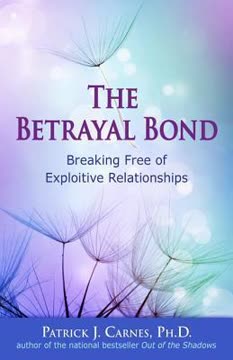
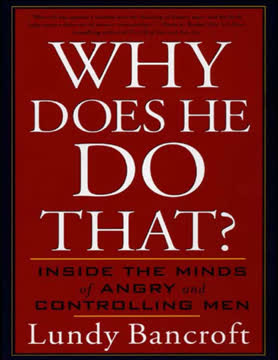
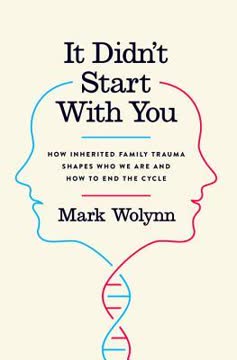
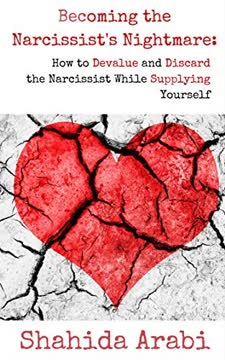

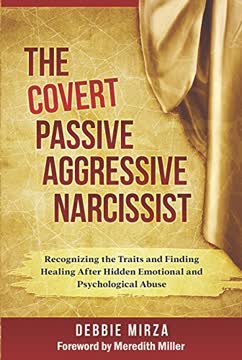
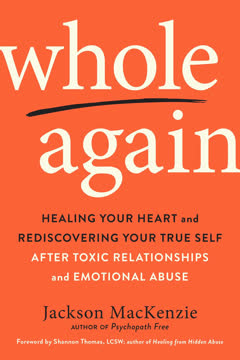
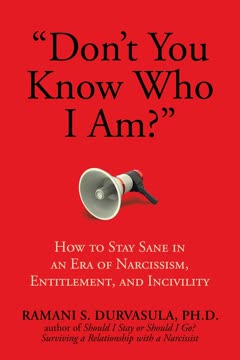
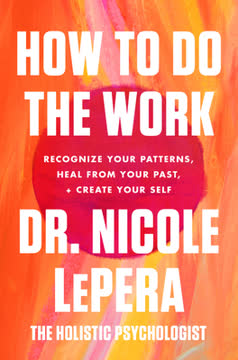
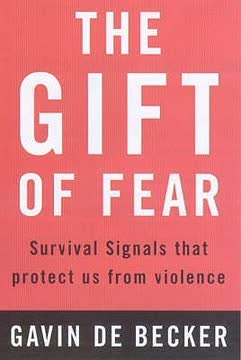
Download PDF
Download EPUB
.epub digital book format is ideal for reading ebooks on phones, tablets, and e-readers.
